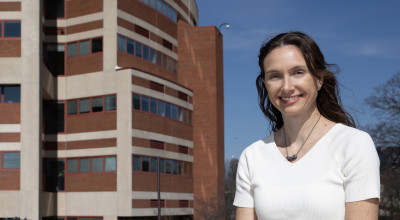Georgia Tech’s Center for the Development and Application of Internet of Things Technologies (CDAIT) has added Amazon Web Services, Inc. (AWS) to its growing list of members and launched four new working groups.
AWS is the most recent company to sign on to the research center, which now includes the following members from around the world:
- AirWatch by VMware (U.S.)
- Amazon Web Services (U.S.)
- AT&T (U.S.)
- Brambles (Australia)
- Cisco (U.S.)
- Corning (U.S.)
- Flex (formerly Flextronics) (Singapore)
- IBM (U.S.)
- Infor (U.S.)
- Merial [Sanofi] (France)
- Samsung (Korea)
- Stanley Black and Decker (U.S.)
- USAA (U.S.)
- Wipro (India)
“We are pleased to welcome AWS to the Board of CDAIT,” said Jeff Evans, Chairman of CDAIT’s Executive Advisory Board (EAB). “AWS is the latest company to place a high value on Georgia Tech’s breadth of expertise and depth of experience in technological research in the fields that impact the Internet of Things.”
Amazon Web Services will be represented on the CDAIT EAB by Mark Ryland, Chief Solutions Architect, World Wide Public Sector Team, AWS.
“We are delighted to join Georgia Tech’s Center for the Development and Application of Internet of Things Technologies to further explore the huge potential of IoT technologies,” said Ryland. “This is a focus area for us, as our customers are eager to unlock that potential. The AWS Cloud plays a key role in easily and securely connecting devices, managing their state, and providing analytics on the potentially massive amounts of data they produce, with automatic scaling to meet any customer’s needs.”
CDAIT has also launched four new Working Groups tackling education, chaired by Dr. Margaret Loper of Georgia Tech Research Institute (GTRI); startup ecosystem, chaired by Tech Square Ventures’ Blake Patton; thought leadership, chaired by Cisco’s Scott Puopolo; and research, chaired by Kenji Takeuchi of Flex.
“These new groups are busy pulling together deliverables that will move the needle in the Internet of Things space worldwide,” said Alain Louchez, Managing Director of CDAIT. “Our vision of the center has always been focused on effective collaboration between university and industry, and we are extremely pleased with our progress in this regard.”
The Executive Advisory Board is scheduled to meet Dec. 7, 2016, at Georgia Tech in Atlanta.
About CDAIT
CDAIT (pronounced "sedate") is a global, non-profit, partner-funded center located in Atlanta, Ga., that fosters interdisciplinary research and education while driving general awareness about the Internet of Things. It aims at efficiently identifying, understanding and solving for its sponsors challenges and problems that may arise along the whole IoT value chain. CDAIT bridges sponsors with Georgia Tech faculty and researchers as well as industry members with similar interests. To learn more about CDAIT, visit www.cdait.gatech.edu.





